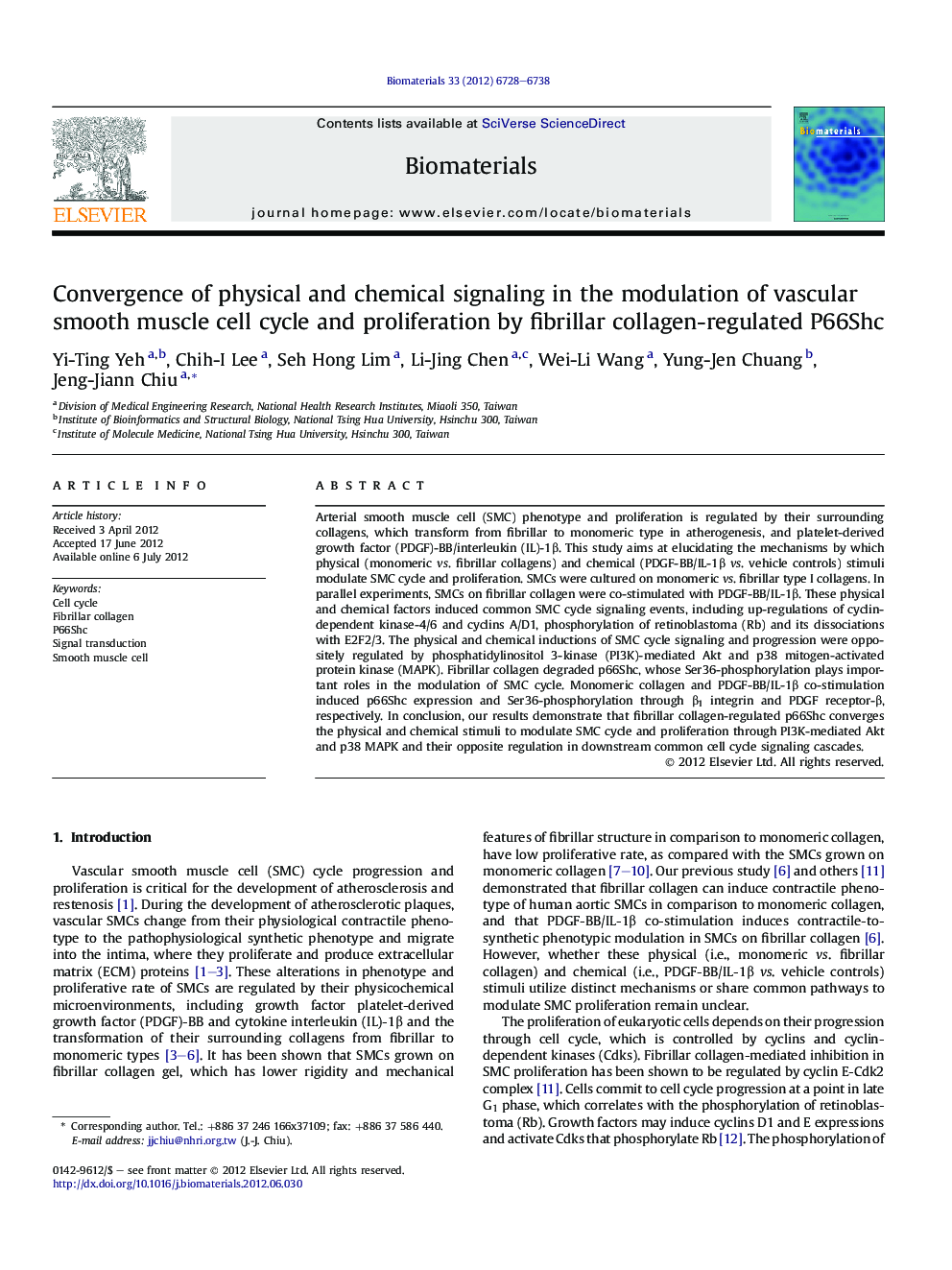| Article ID | Journal | Published Year | Pages | File Type |
|---|---|---|---|---|
| 10229463 | Biomaterials | 2012 | 11 Pages |
Abstract
Arterial smooth muscle cell (SMC) phenotype and proliferation is regulated by their surrounding collagens, which transform from fibrillar to monomeric type in atherogenesis, and platelet-derived growth factor (PDGF)-BB/interleukin (IL)-1β. This study aims at elucidating the mechanisms by which physical (monomeric vs. fibrillar collagens) and chemical (PDGF-BB/IL-1β vs. vehicle controls) stimuli modulate SMC cycle and proliferation. SMCs were cultured on monomeric vs. fibrillar type I collagens. In parallel experiments, SMCs on fibrillar collagen were co-stimulated with PDGF-BB/IL-1β. These physical and chemical factors induced common SMC cycle signaling events, including up-regulations of cyclin-dependent kinase-4/6 and cyclins A/D1, phosphorylation of retinoblastoma (Rb) and its dissociations with E2F2/3. The physical and chemical inductions of SMC cycle signaling and progression were oppositely regulated by phosphatidylinositol 3-kinase (PI3K)-mediated Akt and p38 mitogen-activated protein kinase (MAPK). Fibrillar collagen degraded p66Shc, whose Ser36-phosphorylation plays important roles in the modulation of SMC cycle. Monomeric collagen and PDGF-BB/IL-1β co-stimulation induced p66Shc expression and Ser36-phosphorylation through β1 integrin and PDGF receptor-β, respectively. In conclusion, our results demonstrate that fibrillar collagen-regulated p66Shc converges the physical and chemical stimuli to modulate SMC cycle and proliferation through PI3K-mediated Akt and p38 MAPK and their opposite regulation in downstream common cell cycle signaling cascades.
Related Topics
Physical Sciences and Engineering
Chemical Engineering
Bioengineering
Authors
Yi-Ting Yeh, Chih-I Lee, Seh Hong Lim, Li-Jing Chen, Wei-Li Wang, Yung-Jen Chuang, Jeng-Jiann Chiu,
